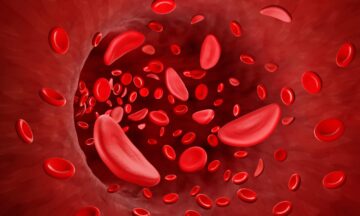Krithika Varagur in The Guardian:
 Nigeria is the sickle cell capital of the world. Its residents account for about half of all new cases of severe haemoglobin disorders worldwide. And SCD is one of the world’s most prevalent autosomal recessive genetic disorders; the sickle cell trait is more than six times more common in Nigerians than the cystic fibrosis gene is among people of northern European descent, or the Tay-Sachs gene among Ashkenazi Jews.
Nigeria is the sickle cell capital of the world. Its residents account for about half of all new cases of severe haemoglobin disorders worldwide. And SCD is one of the world’s most prevalent autosomal recessive genetic disorders; the sickle cell trait is more than six times more common in Nigerians than the cystic fibrosis gene is among people of northern European descent, or the Tay-Sachs gene among Ashkenazi Jews.
In the 1950s, a number of scientists speculated that the sickle cell trait confers some resistance to malaria – now a widely accepted theory – which would account for the prevalence of the gene in sub-Saharan Africa, home to more than 90% of all malaria cases in the world. Over millennia, according to this hypothesis, as more AS than AA children survived acute malaria infections and reached reproductive age, they passed on their single S genes. But for those with two such genes, the potential complications include acute pain episodes, acute chest syndrome, strokes, priapism, jaundice, numb chin syndrome, an enlarged spleen, leg ulcers and blindness.
More here.
